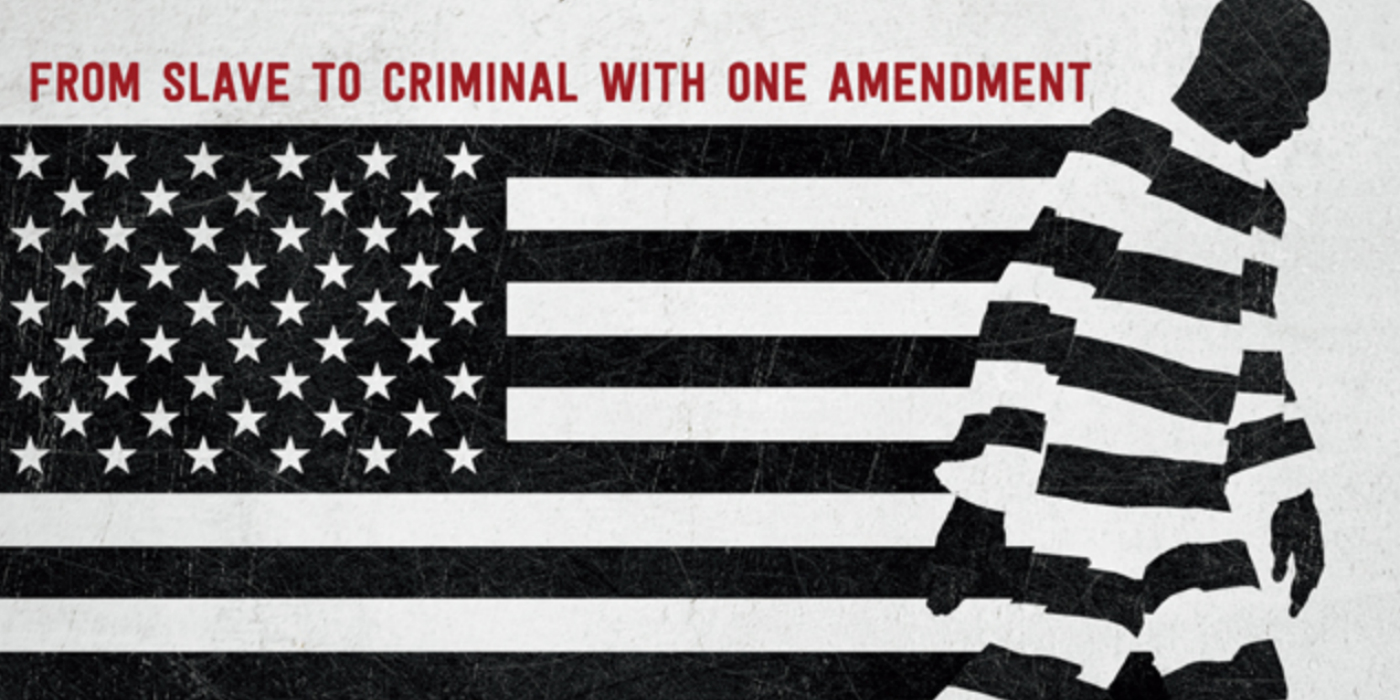“The 13th amendment, which formally abolished slavery in the United States, passed the Senate on April 8, 1864, and the House on January 31, 1865. On February 1, 1865, President Abraham Lincoln approved the Joint Resolution of Congress submitting the proposed amendment to the state legislatures. The necessary number of states ratified it by December 6, 1865. The 13th amendment to the United States Constitution provides that “Neither slavery nor involuntary servitude, except <<OK STOP HERE. Look back at the last word. Understand what it means. This is the exception to the rule. CONTINUE>> as a punishment for crime<< STOP AGAIN. if you are convicted of a crime you are the exception to the abolition rule. Period. CONTINUE>> whereof the party shall have been duly convicted, <<STOP. So to be considered a slave all you need is a conviction. in 2015 “97 percent of federal cases and 94 percent of state cases ended in plea bargains, with defendants pleading guilty in exchange for a lesser sentence. Courtroom trials, the stuff of television dramas, almost never take place.” CONTINUE>> shall exist within the United States, or any place subject to their jurisdiction.” << To be clear, NONE of those proclamations applied to the exception.
In 1863 President Lincoln had issued the Emancipation Proclamation declaring “all persons held as slaves within any State, or designated part of a State, the people whereof shall then be in rebellion against the United States, shall be then, thenceforward, and forever free.” <<
STOP. Think about that.
As President Obama explained It only applied to states in rebellion. Like telling a terrorist that guns are legally banned.
CONTINUE>> Nonetheless, the Emancipation Proclamation did not end slavery in the nation. Lincoln recognized that the Emancipation Proclamation would have to be followed by a constitutional amendment in order to guarantee the abolishment of slavery. <<
STOP. So the plan was wrapped up in a constitutional amendment. There were 3 which came into being.
Continue>>
The 13th amendment was passed at the end of the Civil War before the Southern states had been restored to the Union and should have easily passed the Congress. Although the Senate passed it in April 1864, the House did not. At that point, Lincoln took an active role to ensure passage through congress. He insisted that passage of the 13th amendment be added to the Republican Party platform for the upcoming Presidential elections. His efforts met with success when the House passed the bill in January 1865 with a vote of 119–56.
With the adoption of the 13th amendment, the United States found a final <<STOP. Final is not allowed as a description while an exception exists. Propaganda. CONTINUE>>> constitutional solution to the issue of slavery. The 13th amendment, along with the 14th and 15th, is one of the trio of Civil War amendments that greatly expanded the civil rights of Americans.
Everything we have today regarding freedom and rights as blacks in America is because of those 3 amendments above. We know now that a transfer of property rights happened.
From plantation owner to state and federal prisons. The 13th amendment had a clear allowance for the continuation of slavery and that allowance has manifested into what we practice through our justice system today. It was based on rotten roots of betrayal and compromise among slavers with the ownership of the labor, freedom and future of people of color as the bargaining tool and ultimate prize. We even turned the tide by fighting the war. And then we became POW’s in perpetuity.
The 14th Amendment to the Constitution was ratified on July 9, 1868, and granted citizenship to “all persons born or naturalized in the United States,” which included former slaves recently freed.
But remember that anyone convicted of a crime was not considered a slave recently freed. They would be the exception which led to the industrial revolution upon the backs of incarcerated black prison laborers in mines and on railroads. People whose only crime was
being black while black was illegal.
“In the United States,
the Black Codes were laws passed by Southern states in 1865 and 1866, after the Civil War. These laws had the intent and the effect of restricting African Americans’ freedom, and of compelling them to work in a labor economy based on low wages or debt.”
So the 13th amendment didn’t just negate abolition it also negated the 14th amendment as a slave can not be a citizen. Ted Cruz who was born in Canada can vote. A convict cannot vote without special conditions. And what about voting anyway? What does that say?
“The 15th Amendment to the Constitution ratified on February 3, 1870, granted African American men the right to vote by declaring that the “right of citizens of the United States to vote shall not be denied or abridged by the United States or by any state on account of race, color, or previous condition of servitude.”
Is this the case today for convicts? No.
“More than 5.85 million adults who’ve been convicted of a felony aren’t welcome at polling places, according to data through 2010 compiled by The Sentencing Project. That’s 600,000 more than in 2004, the last time the nonprofit group crunched the numbers.”
This was 6 year ago. in 2015 nearly 14 million went through our jails. 2.4 million sat in prisons. As many as 800,000+ of them are veterans. Every year 3/4 of a million go in and out of prisons. Nearly every time losing a right guaranteed by the constitution. They lose those rights because they have become property of the state. And exceptions to the abolition rule as described in the 13th amendment.
Originally published 1/21/2016
The Incarceration Nation in Black & White[youtube https://www.youtube.com/watch?v=mds4jVFolCI]
“I Denounce the So-Called Emancipation as a Stupendous Fraud”
by Fredrick Douglas(1888) Full speech transcript.
[youtube https://www.youtube.com/watch?v=videoseries?list=PLdsJbMWoakDnpJsqqoJqvuk1oFelU5vRO]
